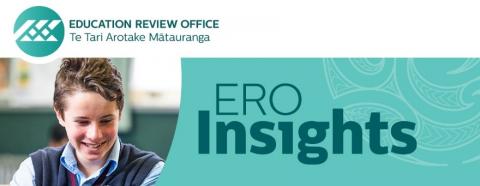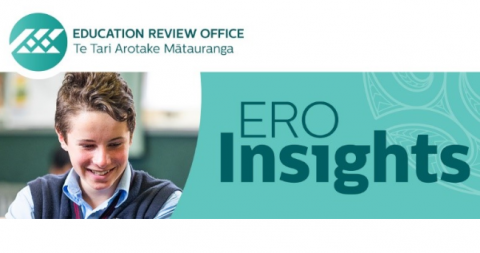
Kia ora
It’s been a full-on year already and we’re only in Term 2. Like you, we’ve had to work around and through COVID-19 restrictions to keep things moving – often it seems at a much slower pace than we’re used to before COVID-19 entered our world. All of us living in New Zealand will have to keep adapting to what will possibly be a new way of working in some way or another.
In this edition, we look at how we’re tracking as we move from the concept of the new Schools Operating Model to reality. ERO’s approach will continue to be iterative as all schools are introduced to the new Operating Model, allowing us to gain from wider and real-time feedback.
We also update you on our approach to review and evaluation in Early Learning Services (ECEs), initially in centre-based early childhood services.
I also share below summaries of recent studies and insights produced during the past term. This begins with an introduction to our ongoing work on Learning in a COVID-19 World where ERO looked at the impacts of COVID-19 on ECE centres and schools.
The reports in this suite include key lessons going forward and practical steps ECE centres and schools might take to respond to the ongoing impacts of COVID-19. Te Muka Here Tangata, takes a special look into the impact of COVID-19 on Māori learners illustrated through eight case studies from low-decile English-medium schools with high populations of Māori students in the Bay of Plenty and East Coast regions.
In our recently produced series on the teaching of science we provide sign posts into curriculum and teaching approaches drawn from the practices of a sample of schools and early learning services. Scientific thinking influences almost every part of our modern society. COVID-19 has shown us how important science is and, with science-related issues, such as climate change and vaccines increasingly impacting on society, it is essential that we have high quality science education. This needs to be deliberate and respond to the natural curiosity about the world that children experience every day.
ERO’s ‘Collaboration in Action’ series provides insights to encourage and support networked arrangements and collective improvement between schools. Our recently published Kahukura Community of Practice report demonstrates that collaboration between schools, focused on improving teaching and learning outcomes, has a positive impact on raising student, school and system performance. These two recent additions provide some useful insights that you can use to test where your collaborative effort might be at.
In our piece One Year On, we also go back to the group of teachers who joined New Zealand schools from overseas in 2019 and were the subject of our 2020 report Overseas Trained Teachers: Adjusting to living and working in New Zealand. This current study gives us an insight into not only how these teachers have further acclimatised to working in New Zealand schools, but also how they and their families have been impacted by the COVID-19 pandemic.
Ka kite anō
Nicholas Pole
Te Tumu Whakarae mō te Arotake Mātauranga | Chief Executive and Chief Review Officer
In this issue:
- New Schools approach: From concept to reality
- An enhanced focus on quality and improvement in Early Learning Services
- Supporting science teaching with new science reports
- Supporting Collaboration in Action - Kahukura Community of Practice
- One year on - Insights from overseas trained teachers (OTTs)
- Te Muka Here Tanga - The strand that binds people
- Online Teaching practices and Leadership tool for schools from NZCER
- Learning in a COVID-19 World
